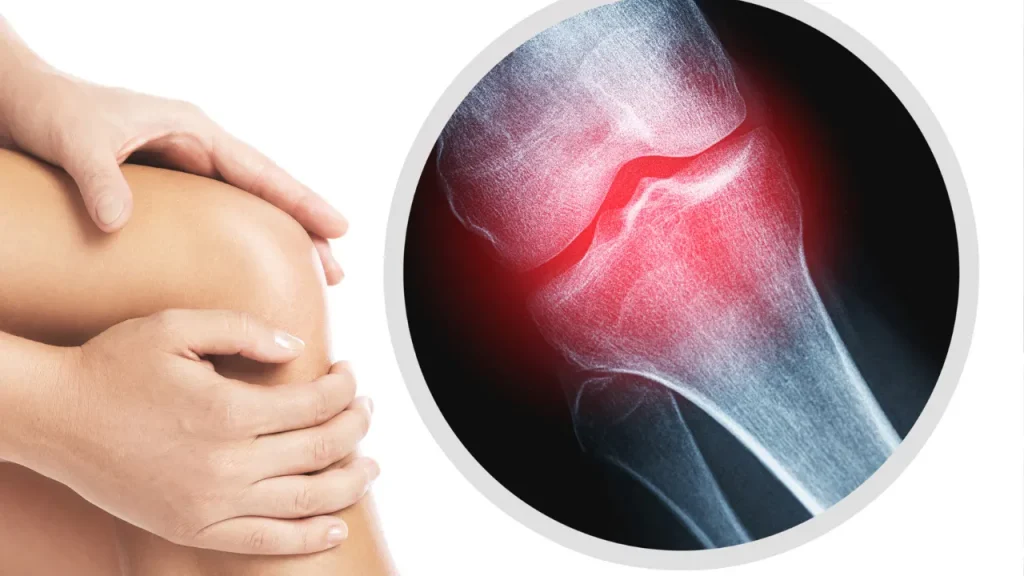Cabbage is a leafy green or purple plant that belongs to the genus brassica oleracea var. capitata and is well-known around the world for its high nutritional value and possible health advantages. This cruciferous vegetable is a member of the brassicaceae family, which also contains kale, broccoli, and other nutrient-rich vegetables. Nutritionists, medical experts, and academics have all taken a keen interest in the vegetable’s richness of vitamins, minerals, and phytochemicals, which has sparked an investigation into its possible advantages and implications for good health.
You May Also Like:
Keep Your Brain Young With the 5 Most Powerful Nootropic Supplements
Finding the Best Supplements for Brain Fog After COVID: 5 Top Brands Reviewed
Cabbage: Benefits, Dosage, Side Effects, Drug Interactions, and Other Important Information is an original (NootropicsPlanet) article.
Nature of Cabbage
The biennial plant known as cabbage develops into a head with many leaves that remarkably resembles a tiny, round, green or purple ball. It is a cool-weather crop, therefore a lengthy, frost-free growing season is ideal for it to flourish. It can, however, be cultivated in a range of environmental circumstances since it is versatile. Cabbage comes in a wide range of colors, including green, red, and savoy, and each one has a distinctive taste and nutrient profile.
Genetically speaking, broccoli, cauliflower, and brussels sprouts are all members of the brassica genus, which also contains cabbage. These vegetables are categorized as “cruciferous vegetables” because of the cross-like design on their blooms.
Health Benefits
Consuming cabbage has several health advantages, which are mainly attributable to the vegetable’s strong antioxidant and anti-inflammatory properties.
- Cardiovascular Health: Cabbage’s potassium concentration is essential for preserving a healthy heart. Potassium aids in easing blood vessel tension, which lowers blood pressure. Low-density lipoprotein (LDL), generally known as “bad cholesterol,” may be reduced by the fiber content, which can result in improved cardiovascular health.
- Digestive Health: The fiber in cabbage helps to encourage regular bowel movements, which can lower the risk of constipation and other digestive problems. Additionally, the gut bacteria can convert the glucosinolates in cabbage into bio-active substances that have beneficial effects on the gastrointestinal system.
- Anticancer Properties: Several studies have shown that the isothiocyanates made from cabbage’s glucosinolates may have anti-cancer properties. These substances assist in removing carcinogens and prevent the spread of cancer cells.
- Bone Health: Cabbage’s high vitamin K concentration is crucial for bone health because it helps to produce the proteins required for bone mineralization.

Chemical of Cabbage
The high water content of cabbage, which can makeup over 92% of its weight, is well-known. It is also a rich source of dietary fiber and low in fat. More importantly, it is abundant in vitamins like folate, vitamin K, vitamin C, and vitamin B6. In terms of minerals, cabbage is an excellent supplier of manganese and potassium.
Polyphenols and glucosinolates, among other beneficial substances, are particularly abundant in cabbage. Like flavonoids and phenolic acids, polyphenols are strong antioxidants that have the ability to counteract dangerous free radicals. Sulfur-containing substances known as glucosinolates may be degraded by enzymes to produce isothiocyanates, which have potent anticarcinogenic abilities.
Physiological Properties of Cabbage
The abundance of nutrients and bio-active substances in cabbage contribute to its beneficial effects on health through a variety of physiological processes.
- Antioxidant Mechanism: Vitamin C and polyphenols, two powerful antioxidants, are abundant in cabbage. Antioxidants aid in the body’s defense against dangerous free radicals, lowering oxidative stress, which has been related to chronic illnesses including cancer and heart disease.
- Anti-Inflammatory Mechanism: Several of the chemicals in cabbage have anti-inflammatory effects. Included in this are anthocyanins, a kind of flavonoid present in red cabbage and they are capable of lowering inflammatory levels in the body.
- Bile Acid Ecretion: Bile acid excretion from the body is facilitated by the fiber in cabbage, which can bind to them in the stomach. This procedure efficiently lowers the amount of cholesterol in the blood by forcing the body to use the circulating cholesterol to create more bile acids.
- Anti-Cancer Mechanism: Glucosinolates, which are found in cabbage, can be converted into bio-active substances like isothiocyanates and indoles. These drugs prevent the growth of cancer by encouraging cancer cells to destroy themselves, preventing them from spreading, and neutralizing the molecules that cause cancer.
- Gut Health Mechanism: Cabbage is a strong source of dietary fiber and probiotics, both of which maintain a healthy gut microbiota, especially when it is fermented into sauerkraut or kimchi. This can improve immunological performance, digestion and absorption, and can even have an effect on mental wellness.

Optimal Dosage
Since cabbage is a complete food, there is no established “dosage.” It is advised to include it within a balanced diet, nevertheless. According to the Dietary Guidelines for Americans, 2 to 3 cups of vegetables per day, especially cruciferous vegetables like cabbage, are recommended.
Despite being mostly safe to eat, cabbage may have some negative consequences. . Due to its high fiber content, consumption of cabbage in large quantities might induce bloating and gas in certain people. Additionally, if you have hypothyroidism, you may need to restrict their consumption of cabbage since the vegetable includes goitrogens, which might affect the thyroid hormone-producing process.
Potential Side Effects
Although cabbage has many health advantages, eating too much of it might have some negative consequences. These consist of:
- Digestive Discomfort: Consuming too much cabbage can make you feel bloated, flatulent, and uncomfortable in your abdomen, especially if you’re not used to eating a lot of fiber. Raffinose, an indigestible carbohydrate that is fermented by gut bacteria and causes gas production, is the cause of this.
- Hypothyroidism: Hypothyroidism goitrogens, which are organic compounds that may prevent the thyroid gland from working properly, are present in cabbage. Iodine, a necessary component for the production of thyroid hormones, may be inhibited by these drugs. Although consuming cabbage in moderation is unlikely to result in health complications, anybody who has thyroid conditions or is at risk for iodine deficiency should speak with their doctor before dramatically increasing their intake.
- Risk of Kidney Stones: Oxalates, which are naturally occurring substances that can bond with calcium to produce kidney stones, are present in cabbage, as well as other cruciferous vegetables. Excessive intake of foods rich in oxalate, such as cabbage, should be avoided by those with a history of kidney stones or those who are more likely to develop them.

Potential Substance Interactions
Vitamin K is present in cabbage, which is essential for blood clotting. As a result, it might conflict with blood thinners like warfarin. To avoid variations in their medication’s efficacy, if you are taking such medications, you should keep your vitamin K consumption steady.
Best Responsible Use of Cabbage
Vegetable versatility allows for several methods to include cabbage in a diet. Here are some pointers for using cabbage in the best possible way:
- Dietary Integration: Including cabbage in your regular diet is the quickest and most efficient method to ingest it. To get the most out of its nutrients, cabbage can be included in salads, steamed as a side dish, or be cooked in soups and stews, and cabbage may also be consumed raw. With the additional advantage of probiotics, fermented cabbage products like sauerkraut and kimchi may also be great additions to the diet.
- Moderation: Although eating cabbage is typically harmless, it is crucial to keep the idea of moderation in mind. If you have certain medical problems, eating too much cabbage might cause gastrointestinal pain or other negative effects.
- Variety: It is important not to limit your consumption of vegetables to only cabbage in order to achieve a balanced intake of nutrients. You can get a wider variety of nutrients and health advantages by including a variety of veggies in your diet.
- Cooking Techniques: The nutritional content of cabbage can vary depending on how it is prepared. A loss of several vitamins, especially vitamin C, may result from overcooking. Its nutritional ingredients may be preserved with a little steaming or sautéing.
- Special Considerations: If you are on medications like warfarin or have specific health conditions such as hypothyroidism or a history of kidney stones, it is crucial to consult a healthcare provider before significantly increasing cabbage intake.
Cabbage:
Conclusion
It is essential to remember that these side effects are often linked to excessive intake or certain medical problems. The majority of people can safely and profitably include cabbage as part of a balanced diet. Always get medical advice before making large dietary changes, especially if you have any pre-existing diseases or are using drugs that can interfere with specific components in cabbage.

References:
- “Cabbage: Health Benefits, Nutritional Information.” Retrieved From: https://www.medicalnewstoday.com/articles/270435
- “Cabbage, raw: Nutrition Facts & Calories.” Retrieved From: https://nutritiondata.self.com/facts/vegetables-and-vegetable-products/2371/2
- “Cruciferous Vegetables and Cancer Prevention.” Retrieved From: https://www.cancer.gov/about-cancer/causes-prevention/risk/diet/cruciferous-vegetables-fact-sheet
Important Note: The information contained in this article is for general informational purposes only, and should not be construed as health or medical advice, nor is it intended to diagnose, prevent, treat, or cure any disease or health condition. Before embarking on any diet, fitness regimen, or program of nutritional supplementation, it is advisable to consult your healthcare professional in order to determine its safety and probable efficacy in terms of your individual state of health.
Regarding Nutritional Supplements Or Other Non-Prescription Health Products: If any nutritional supplements or other non-prescription health products are mentioned in the foregoing article, any claims or statements made about them have not been evaluated by the U.S. Food and Drug Administration, and such nutritional supplements or other health products are not intended to diagnose, treat, cure, or prevent any disease.


